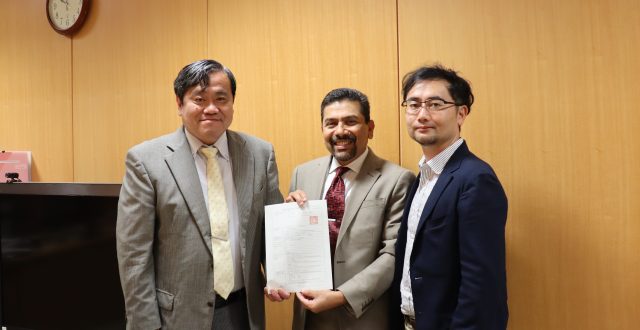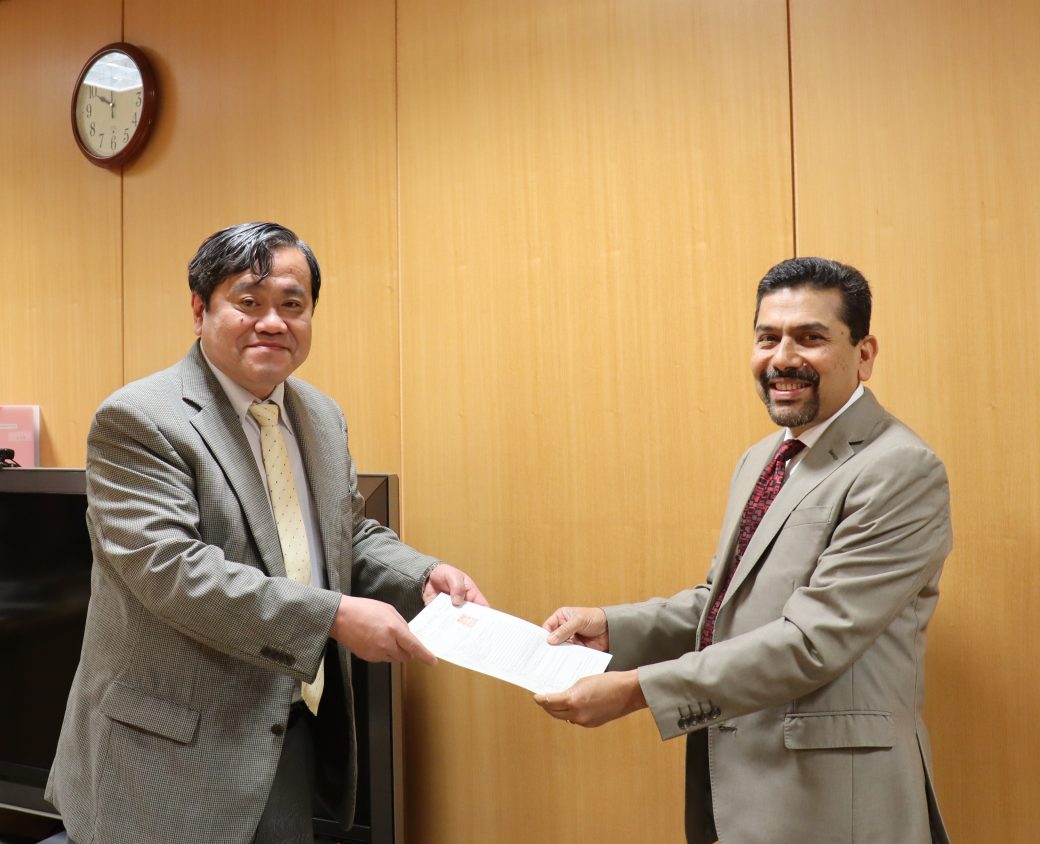
Dr. Sunil S. Chirayath assigned to IIR as Specially Appointed Associate Professor
WRHI Newsおすすめ
From left, Dr. Koyama(IIR Director-General), Dr. Sunil S. Chirayath, Dr. Hiroshi Sagara

<Field of Specialization>
Nuclear Safety, Security and Safeguards (3S) of Nuclear Fuel Cycle, Monte Carlo Radiation Transport
<Brief introduction of collaborative research and aims at WRHI>
Several advanced nuclear reactor designs and corresponding R&D are progressing which are Generation IV-type nuclear reactors. The four attributes of a Generation IV reactor are; highly economical, enhanced safety, proliferation resistance, and reduced amount of nuclear waste compared to Generation II, III, III+ reactors. Among them, prominent reactor designs are the molten salt reactors (MSRs), specifically (a) the fluoride-salt-cooled high-temperature reactor (FHR) that uses pebble-type solid fuel and cooled by molten salt, and (b) salt-fueled reactors that used dissolved fuel in the molten salt. There are two aspects for these salt-cooled and salt-fueled reactor fuel cycles that need imminent R&D efforts: (1) Nuclear safeguards approaches development and (2) Nuclear waste problem.
The objectives of the collaboration at WRHI are:
・Analyze and develop methods for handling the solid fuel discharged from FHRs and residues from the salt-fueled MSRs with regard to interim and long-term waste storage by considering the heat load, criticality safety, radioactive source term and their volume.
・Develop nuclear material balance areas (MBAs), nuclear material key measurement points (KMPs) and nuclear material balance periods (MBPs) for Advanced Reactor Fuel Cycles for supporting special nuclear material accounting and monitoring to guard against nuclear proliferation and malicious acts.
・R&D informed course teaching on the topics: (1) nuclear fuel cycle and safeguards; and (2) Monte Carlo computational radiation transport uncertainty evaluations in fuel burnup simulations.
With an expected impact of:
・Proficiency and competence sharing between nuclear engineering academics in the topical area of advanced reactors and its fuel cycle for sustainability of the peaceful uses of nuclear energy.
・Joint R&D papers in peer reviewed journals.
・Best practices sharing in teaching the topics of nuclear safeguards, waste handling, criticality safety, uncertainty quantification.
・Better understanding of Japanese culture (personal interest).
<Collaborative Researcher>
Dr. Hiroshi Sagara(Associate Professor, Laboratory for Advanced Nuclear Energy, Institute of Innovative Research, Tokyo Tech)
